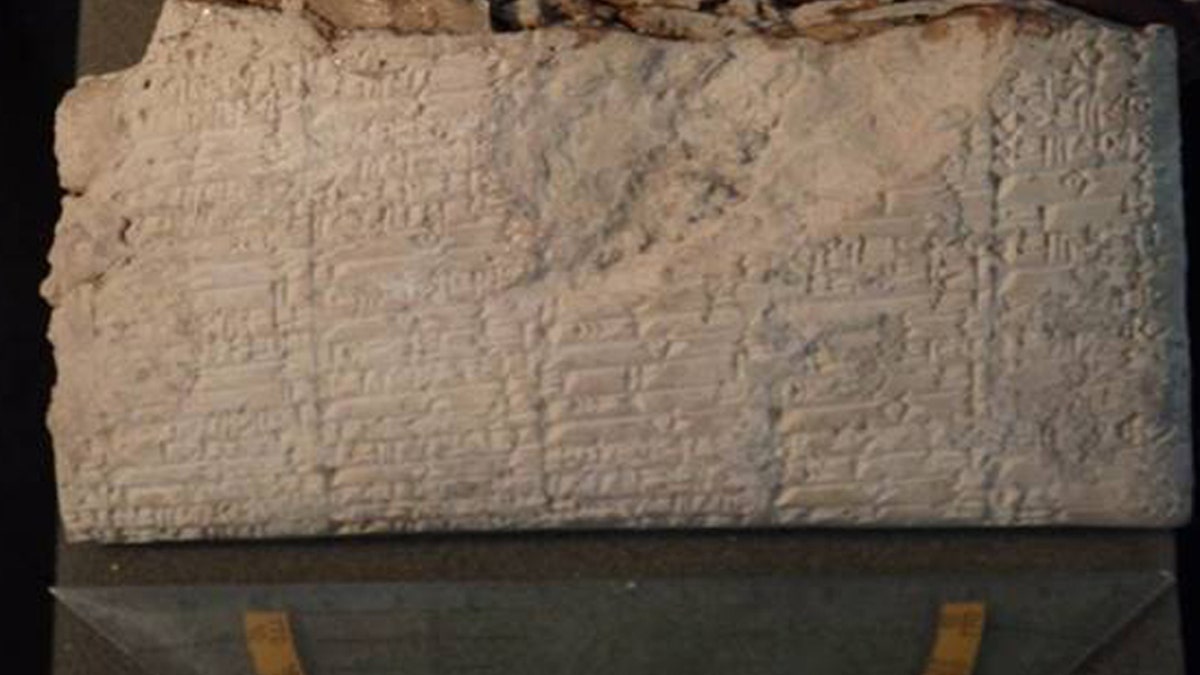
Customers walk to a Hobby Lobby store in Oklahoma City, Monday, June 30, 2014. The Supreme Court ruled Monday that employers can hold religious objections that allow them to opt out of the new health law requirement that they cover contraceptives for women. The Hobby Lobby chain of arts-and-crafts stores is by far the largest employer of any company that has gone to court to fight the birth control provision. (AP Photo/Sue Ogrocki) (The Associated Press)
The arts-and-crafts chain Hobby Lobby announced Wednesday that it would pay $3 million to help settle a federal lawsuit alleging that the company bought thousands of smuggled artifacts from dealers who intentionally mislabeled the shipments as containing tile samples.
In a civil complaint, prosecutors alleged Hobby Lobby began collecting "historically important manuscripts, antiquities and other cultural materials" around 2009, shipping them to company headquarters in Oklahoma City.
Beginning in the summer of 2010, Hobby Lobby President Steve Green allegedly expressed interest in buying thousands of artifacts — including tablets written in cuneiform, one of the earliest systems of writing — from Israeli antiquities dealers based in the United Arab Emirates.

A cuneiform tablet authorities say was illicitly imported by Hobby Lobby (U.S. Attorney's Office-Eastern District of New York)
According to the Justice Department complaint, an expert hired by Hobby Lobby's in-house counsel warned in October of that year that such artifacts "may have been looted from archaeological sites in Iraq."
Despite the warning, prosecutors say Hobby Lobby agreed to buy more than 5,500 of the artifacts for $1.6 million, far less than the $11.8 million a company consultant estimated them to be worth. The government said the purchase was "fraught with red flags."
The Justice Department claimed the artifacts were variously sent to the addresses of Hobby Lobby and two subsidiaries in Oklahoma City, with shipping labels describing them as simply "ceramic tiles" or "clay tiles (sample)." Five shipments that were intercepted by federal customs officials bore shipping labels that falsely declared that the artifacts' country of origin was Turkey.
In September 2011, a package containing about 1,000 clay bullae, an ancient form of inscribed identification, was received by Hobby Lobby from an Israeli dealer and accompanied by a false declaration stating that its country of origin was Israel.
Late Wednesday, Hobby Lobby announced that it would forfeit the artifacts and an additional 144 cylinder seals to settle the complaint, as well as the $3 million. Prosecutors say Hobby Lobby agreed to adopt internal policies for importing cultural property and training its personnel.
In a statement, Green acknowledged the company had made "regrettable mistakes," adding "We should have exercised more oversight and carefully questioned how the acquisitions were handled."
Green said Hobby Lobby began acquiring a variety of historical Bibles and other artifacts in 2009.
"Our passion for the Bible continues, and we will do all that we can to support the efforts to conserve items that will help illuminate and enhance our understanding of this Great Book," Green said.
The Associated Press contributed to this report.

